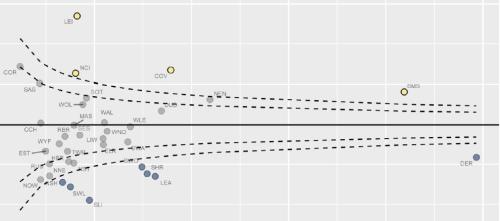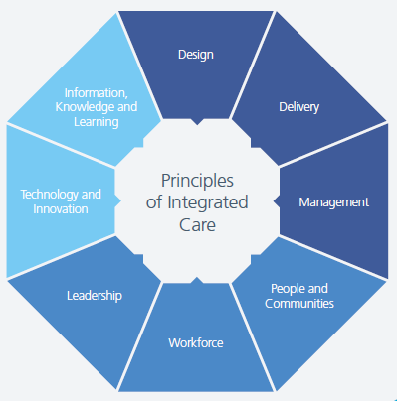Strategy Unit analysis of air quality highlights inequalities
Poor air quality is the largest environmental risk to public health in the UK and central London has the highest levels of particulate matter and nitrogen dioxide. The Guy’s and St. Thomas’ charity, now operating its programmes under the Impact on Urban Health banner, have committed to 10 years of funding to improve air quality-related health in the residents of South London boroughs of Lambeth and Southwark. The charity commissioned the Strategy Unit to explore the health of several key groups and the factors that most influence health alongside air quality within the area.

Some positive news for integrating GP practices with hospital trusts
The drive for greater integration of health and care services has been the central theme of UK health policy for most of

Another look at inequality and NHS action on cardiovascular disease
Cardiovascular disease (CVD) continues to be one of the leading causes of death and disease in the UK.

Learning from lockdown: support for people experiencing homelessness
There are few clearer measures of societal health than homelessness.

Strategy Unit releases opensource model for planning vaccine centre capacity
The UK is running its largest ever vaccination programme. The stakes are enormous.

Equity and Cost Growth in Specialised Services
NHS specialised services provide care for people with complex or rare medical conditions.
COVID-19: breaking the cycle of deprivation and ill health
Promoting whole-system action on the wider determinants of healthy life expectancy in the shadow of the COVID-19 pandemic

Accessibility of perinatal mental health services for women from Ethnic Minority groups
Barriers to accessing mental health care during pregnancy and the first postnatal year (perinatal period) seem to be greater for ethnic minority women.
Primary and Community Qualitative Insights
The COVID-19 response required rapid change and innovation across health and care.
How can Integrated Care Systems collect and use more ‘person-centred intelligence’?
Working with our partners

Key opportunities for eye health and well being
Eye health and sight loss services have historically had a lower profile in service provision compared to many other specialities. There is a view that the importance of eye health has been underrepresented in many Sustainability and Transformation Partnership (STP) plans.
Lessons, Evaluation and Learning from the Dudley MCP
Learning from Dudley MCP

New care models - what's the evidence
High level findings from a series of evidence reviews on new care models.

Let’s face the music and (not) dance
David Frith leads our strategy consultancy work with NHS and third sector organisations.

Why community alternatives to hospital admission don’t (typically) reduce total admission levels
Repeatedly, published evaluations show that community/primary care services interventions with a stated intention to reduce total (or forecast total) emergency admissions to hospital don’t achieve the expected result**
Lessons from the Vanguard: Innovation and Evaluation
The problems facing health and care services are so well known as to be documented in the media most days.
Lessons from the Vanguard: Procurement
Evaluation of the Dudley New Care Models Programme
This is the final system-wide report from the evaluation.
Integrating health and care services - what works? It’s complicated…
Coinciding nicely with the NHS 70th Birthday celebrations and the parallel discussions of ‘where next and how to do it better’ for the NHS, last we

Do you like to integrate horizontally or vertically? NHS positions examined
Our latest research paper explores the impact of the different options for integration implemented as a result of the Transforming Community Services policy in 2010. This accompanying commentary reflects on potential implications for the current policy drive towards Integrated Care Systems.